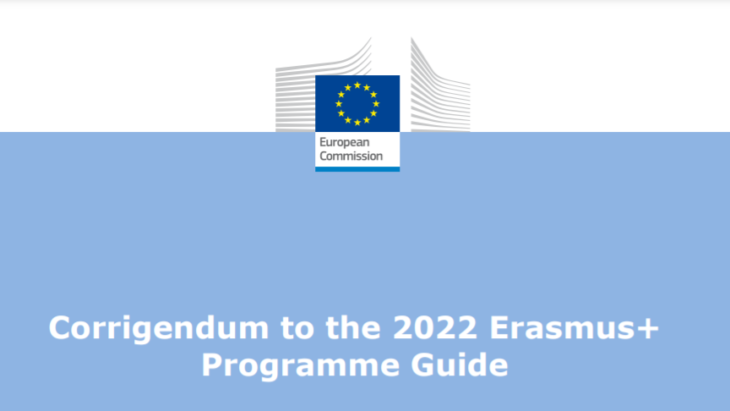In a Europe without borders, protagonist of a ongoing evolution driven by new technologies, by growing globalization and by considerable migratory flows, there are many challenges to which its citizens are called to respond in order to build that dream of a transnational unity that has inspired the founding fathers of the European Union.
And the creation of a United Europe, understood as an economic reality based on the free circulation of productive factors, capital and labor, finds full realization in the processes of transnational mobility which see the education and training sector as a leading player.
The school system in fact represents one of the main agents of change and innovation, playing a fundamental role in the construction of a shared space of lifelong learning at European level, necessary for the realization of a conscious, knowledge-based society.
But the construction of a space open to learning, through which to shape the future of Europe, making the most of the specific cultural roots of its protagonists, means a deep knowledge, on the part of the education and training organizations, of the instruments and the methodologies needed to implement effective action strategies aimed at the “internationalization” of schools.
In fact, Europe means great opportunities. Opportunities for students, teachers and staff to acquire and develop the technical, linguistic and intercultural skills necessary to play their role as active citizens with awareness, even outside of their own context. In fact, there are many European funds to which schools can access to propose projects, ideas and synergies of forces useful to strengthen and enrich their own training offer, making students and local areas aware of the creation of a European network.
Too often, however, European funds and programs are perceived as a reality far from the daily activity of our school contexts, due to the lack of available information and the difficulty of identifying tools to understand the actual points of contact with one’s own activity for to be able to translate them into practice.
Increasing the capacity for European design, recognizing and correctly using the funding opportunities available, therefore becomes an essential imperative. In fact, it is necessary to know how to “reason in European terms” in order to acquire the tools necessary to tackle a conscious, strategic and effective design process that correctly responds to the requests of the call for proposals through the use of a language appropriate to a competitive selection procedure .
The key word is, therefore, “Euro Project Design”, intended as a set of activities through which to proceed to the understanding of languages, processes and technical tools to be used to present quality projects capable of meeting the standards required by the European Commission and/or by the National Agency of reference, in a context of great competition.
Knowing how to present a European project means, in fact, being able to reach a European objective, following a certain method, within a specific period of time, and ensuring a certain quality.
A goal that is certainly stimulating and functional for a School that intends to carry out its projects in the best possible way, training capable and competent human resources to respond to the increasingly complex challenges of globalized modernity.
To achieve an effective “European planning”, through the planning of the idea and the drafting of the proposal, it is necessary:
• use an analytical and strategic approach;
• adopt a working methodology in line with the schemes requested by the evaluators;
• comply with the logic of the form structure;
• clearly describe the project activities aimed at achieving the objectives and expected results.
The ability to create innovative content and the ability to build transnational networks and partnerships are the added value of a relevant, feasible and effective project.
“European Project Design”, therefore, bceause we need to ensure that our School really becomes an open space for learning, training and educating citizens with a European dimension.



















